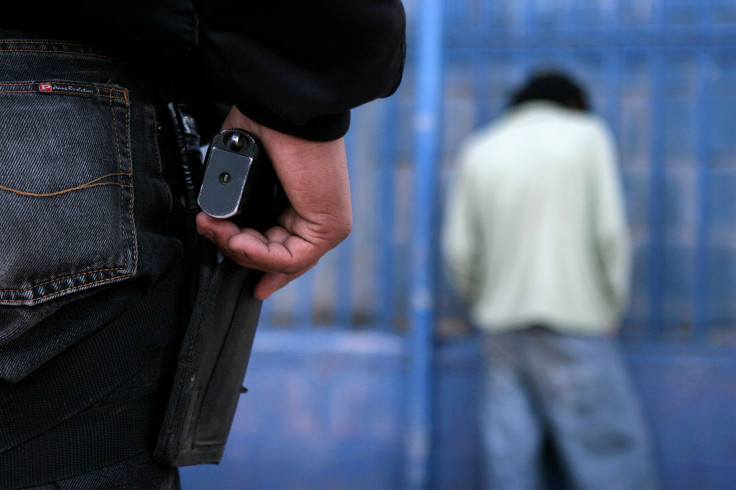Amnesty Documents ‘Dramatic’ Rise In Global Executions In 2015

Last year, 1,634 people were executed by countries across the globe, Amnesty International said in a report released Tuesday. The number, which is the highest ever recorded by the organization since 1989, does not include those executed in China, where data on the death penalty is considered a state secret.
The 2015 figure marks a 54 percent rise over the previous year, when 1,061 people were executed. Of all the executions recorded in 2015, nearly 90 percent were carried out in just three countries — Iran, Pakistan and Saudi Arabia.
However, as the data does not include figures from China, where Amnesty estimates “thousands” are executed every year, the real number is likely to be much higher.
Saudi Arabia, where 158 people were put to death in 2015, witnessed a 76 percent annual jump in executions, while Iran executed at least 977 people — an increase of 31 percent over 2014. In Pakistan, meanwhile, over 320 people were executed, marking the highest annual number ever recorded by Amnesty in the country.
“It was an attack on a school in Peshawar, northwest Pakistan, that prompted the government to start executing again, something it had not done since 2008. Initially, the freeze was lifted for those charged with terrorist-related offences, but in March, the government resumed executions for all capital crimes, such as murder and blasphemy,” Amnesty said in its report. “In a country where people are routinely denied the right to a fair trial, and evidence extracted through torture is used to seal convictions, hundreds of people are being sent to their deaths under the pretence of justice being served.”
The human rights group also found that a number of convictions and death sentences in Saudi Arabia and Iran were based on “confessions” extracted through torture. In addition, Iran continued to execute juvenile offenders — mostly for drug-related offenses — in violation of international law, Amnesty said in its report.
In the U.S., 28 people were executed in 2015 — the country’s lowest since 1991 but still the fifth-largest number recorded worldwide.
“The death penalty breaches two essential human rights: the right to life and the right to live free from torture. Both rights are protected under the Universal Declaration of Human Rights, adopted by the UN in 1948,” the human rights group said in a statement accompanying the report. “Although international law says that the death penalty can be used for the most serious crimes, like murder, Amnesty believes that the death penalty is never the answer.”
Despite the spike in executions, the long-term global trend is toward abolition of death penalty, Amnesty said. In 2015, four countries —Madagascar, Fiji, Congo and Suriname — abolished the death penalty for all crimes, making it the highest number of countries in almost a decade to do so in a year.
“Today the majority of the world’s countries are fully abolitionist, and dozens more have not implemented death sentences for more than a decade, or have given clear indications that they are moving towards full abolition,” Amnesty said in its report. “The starkly opposing developments that mark 2015 underscore the extent to which the countries that use the death penalty are becoming the isolated minority.”
© Copyright IBTimes 2024. All rights reserved.





















